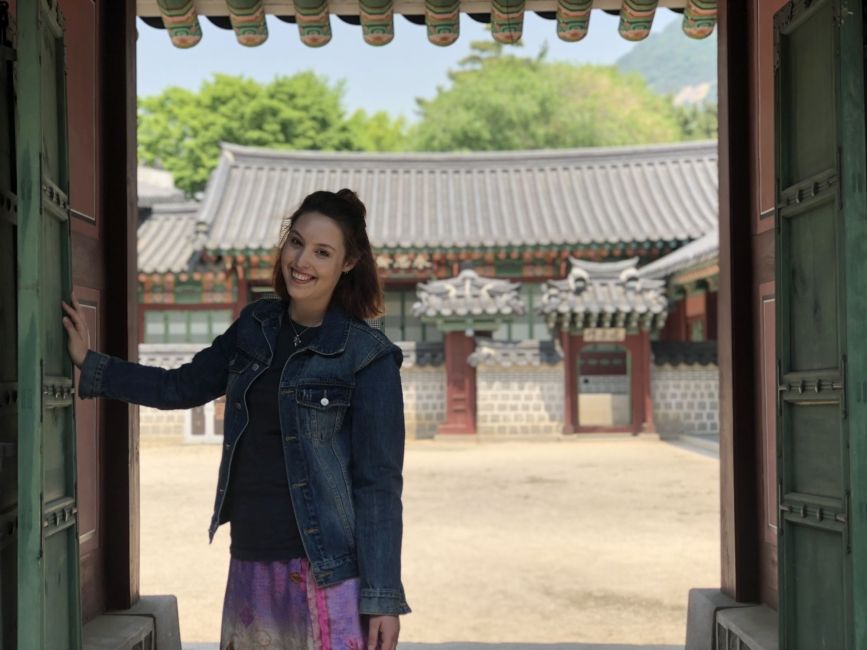The Pros and Cons of Teaching in South Korea
The Good, The Bad, and The Life Changing
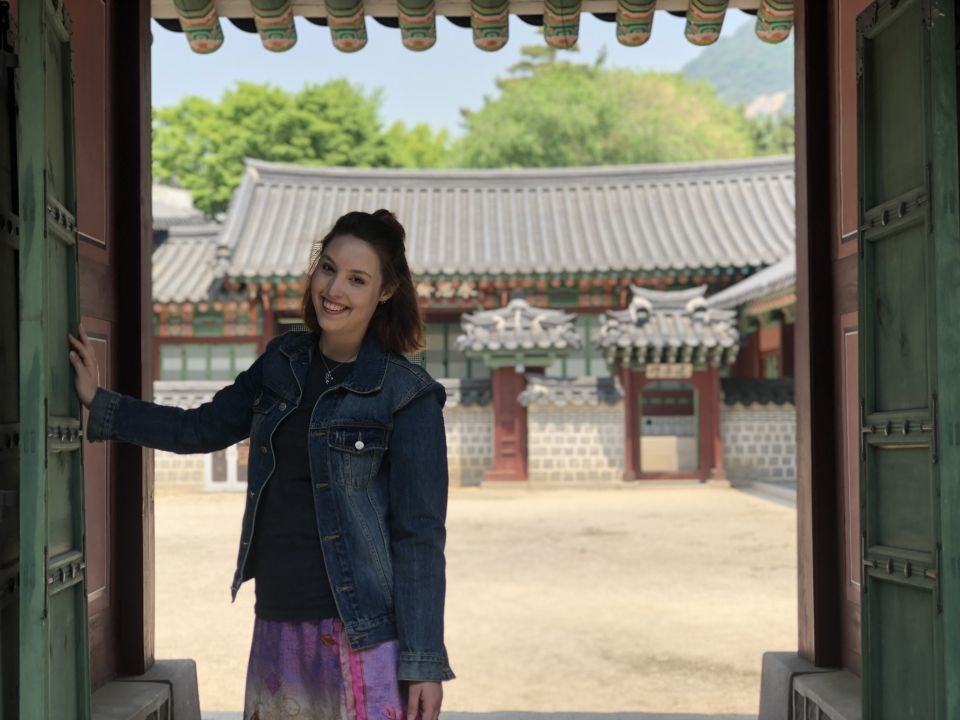
There are many different aspects that need to be considered when you decide to live abroad. You have the pros to think of, is it going to be worth it for you to pack all your stuff and move to a country where you may or may not know anyone? Consider the cons, what kind of hardships will you potentially encounter in that new country? Also consider all the opportunities you will have to delve into a culture unlike your own. When I decided to move to South Korea, I had to weigh all of these things as well. So here is a list I have compiled that might help you consider everything, good and bad, but please note that I teach with EPIK which is different than a private Hagwon:
Pros:
1. The Pay
Let’s be real, money is going to play a large role in whether or not you decide to go through with moving halfway around the world. South Korea does pay very well for native teachers to come out here and teach. Especially when you consider how much work we have to put in and our various contracts. For example, I teach with EPIK, also known as the English Program in Korea, which means I teach in a public school. EPIK covers both my flight here and back home, I get national health insurance, about 1,800 a month before taxes and bills, and they pay for my apartment here. That’s a pretty good deal for someone who has bills back home to pay like a car payment and student loans. Also, as an American, we get our pension back when we decide to leave which translates to about 7,000 dollars (based off one year), give or take if you decide to leave after your contract is done.
2. Vacation Time
As an EPIK teacher we get paid vacation just like any other teacher back in the US. I will warn you that the contracts change each year, but after living here I have some basic insights into the bare minimum they have for vacation days. The old contracts used to give you 20 days of vacation plus 5 professional days. MY contract is different, I have 26 days of vacation but no professional days except for the one when I first got here to go get my ARC. Essentially though, you can expect to get 20 days minimum of paid vacation! This is AWESOME, considering private school teachers only get five in the summer and five in the winter depending on their school, the school decides when those days are.
3. Exploring
Since I only have to work Monday through Friday, I get my weekends to myself. This means I have time to actually get out and go exploring! I think I’ve spent pretty much every weekend in Seoul or down south on one of the islands like Jeju or Tongyeong. If you are lucky enough to be placed near Seoul like I am, there is so much to see in the city. I can honestly say, after three plus months here I have yet to do the same thing twice.

4. Friends
Before living here, I was nervous about who I was going to hang out with, I didn’t know anyone else who was coming. I can now say my worries were for naught. While it took me a little longer to find friends here in my town, I can say that I have friends from other places. During orientation I met a large number of people who I have continued to stay in touch with. Ranging from Canada/US all the way to South Africa/ Australia. We are all busy with our various schedules, but we make time to meet up from time to time and someone always has a suggestion whether they are new or have been here before!

Cons
1. Getting Anywhere
If you are like me, you probably lived in an area where you had a car. You will not have that while here in Korea, at least not right away. If you decide that you love it here and want to stay for longer than a year, sure you might be able to get a vehicle of some kind. But the majority of the time you will be on public transit. I can say that the buses and trains here are on-time, barring any major issues with traffic or accidents. My one complaint though, and it’s going to seem ridiculous until you are the one standing up on the bus having to keep yourself from flying around as the bus careens about, is the fact that these drivers have never seemed to learn how to NOT SLAM on the breaks. Seriously, I have found myself holding on for dear life as they slam to a halt at a bus stop, they know is coming. Not to mention, getting anywhere just takes a significantly longer time no matter how you try to do it, whether it’s bus or train. Most of the time I walk to the stores near my place, but to get to the big city it’s first a bus, then a train, followed by more walking. Here’s hoping my butt looks great by the time I leave here!
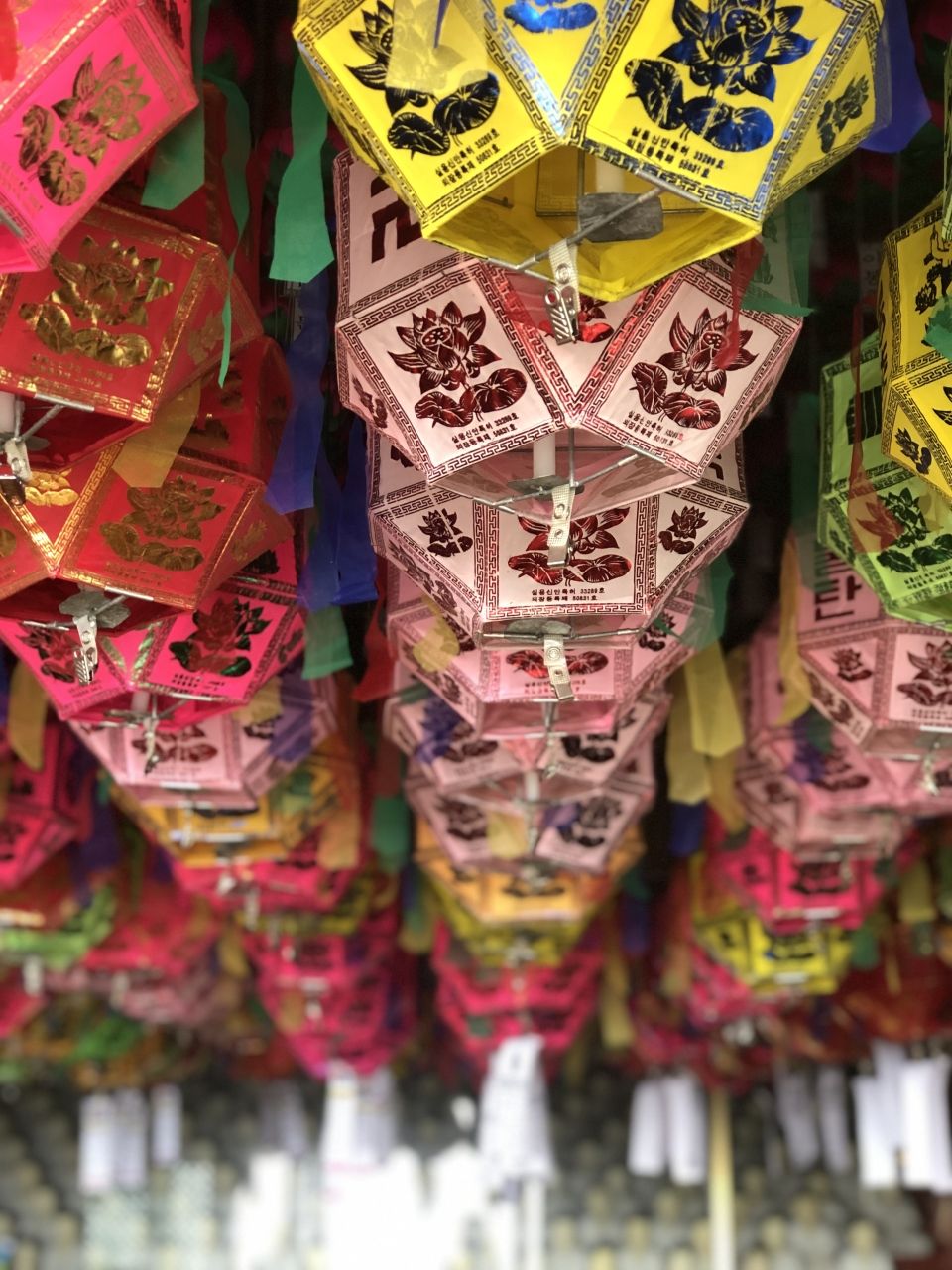
2. My Coworkers Sometimes Treat Me Like A Child
Like I mentioned previously, I don’t know Korean. I’m trying to learn, but it’s a slow process. I’m aware that my co-teachers know that I’m intelligent and that I’m perfectly capable of doing things, but sometimes they treat me like a child. They don’t mean it most of the time, but because I can’t speak to most of them, they content themselves with having to herd me around like a kindergartener. It was a bit eye opening though because back in the states you often encounter non-native speakers and get frustrated talking to them. Trying to explain something and you end up leading them like children. So, while I consider it a con, I also consider it a lesson in patience and empathy. It’s also forced me to take initiative of my own. My Co-Teacher was supposed to take me to go set up a bank account, but she was busy, so I found time to do it on my own, bringing my Korean/English dictionary with me - update I got my bank account opened!
3. Unscheduled changes
This one is closely related to the above con. So, so many unscheduled changes. I am constantly left out of the loop, sometimes because of my lack of Korean and others simply because people don’t realize I don’t know. One good example is tests, my co-teacher wanted to do a speaking test but didn’t tell me until the day before. I had already lesson planned (because she had asked me to) the remainder of the chapter. I had decided to make the books project stretch over a few days. One problem. She was going to base the test off of another part of the lesson I had already done. Then she scheduled the test without consulting me (but then also wanted me to run the test). Did I mention we had a five-day holiday coming up. Needless to say, there was some scrambling and reconfiguring that had to be done, and I was a little bummed the project wasn’t able to be long enough to make them good. Most of the time I roll with the punches, but it makes it difficult to lesson plan when you don’t even know if you will have class that day or if they’ve decided to do testing and not tell you.
4. Everything is Spicy or Seaweed flavored
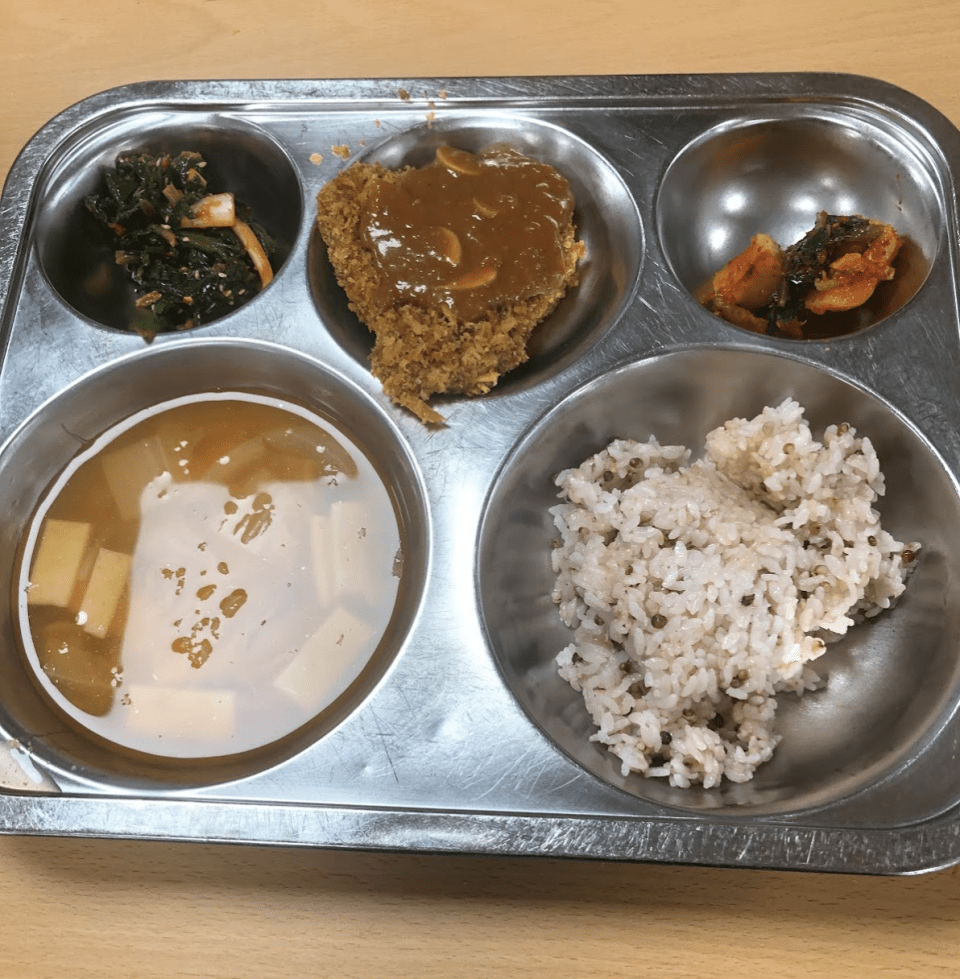
OKAY that’s a bit of an exaggeration. It’s not all spicy or seaweed flavored, things are definitely over sugared though, that’s not a lie. I’m sensitive when it comes to spice, it’s nearly impossible for me to eat anything with any type of kick. This is your warning before you come here. IF YOU DO NOT LIKE SPICY FOOD TREAD LIGHTLY! Even things that taste sweet might have a biting kick. Typically, you are safe with Korean BBQ and a few others like dumplings, unless you get the kimchi ones. I’m also not really kidding about the seaweed taste, it’s in a lot of the soups, and while I’m a fan of seaweed chips and I like miso soup, it does start to wear on the palate. But even this has a silver lining, I have been forced to get creative and try new things. The only problem is my school seems to love serving spicy food, so I had to opt out of school lunch and started to bring my own.
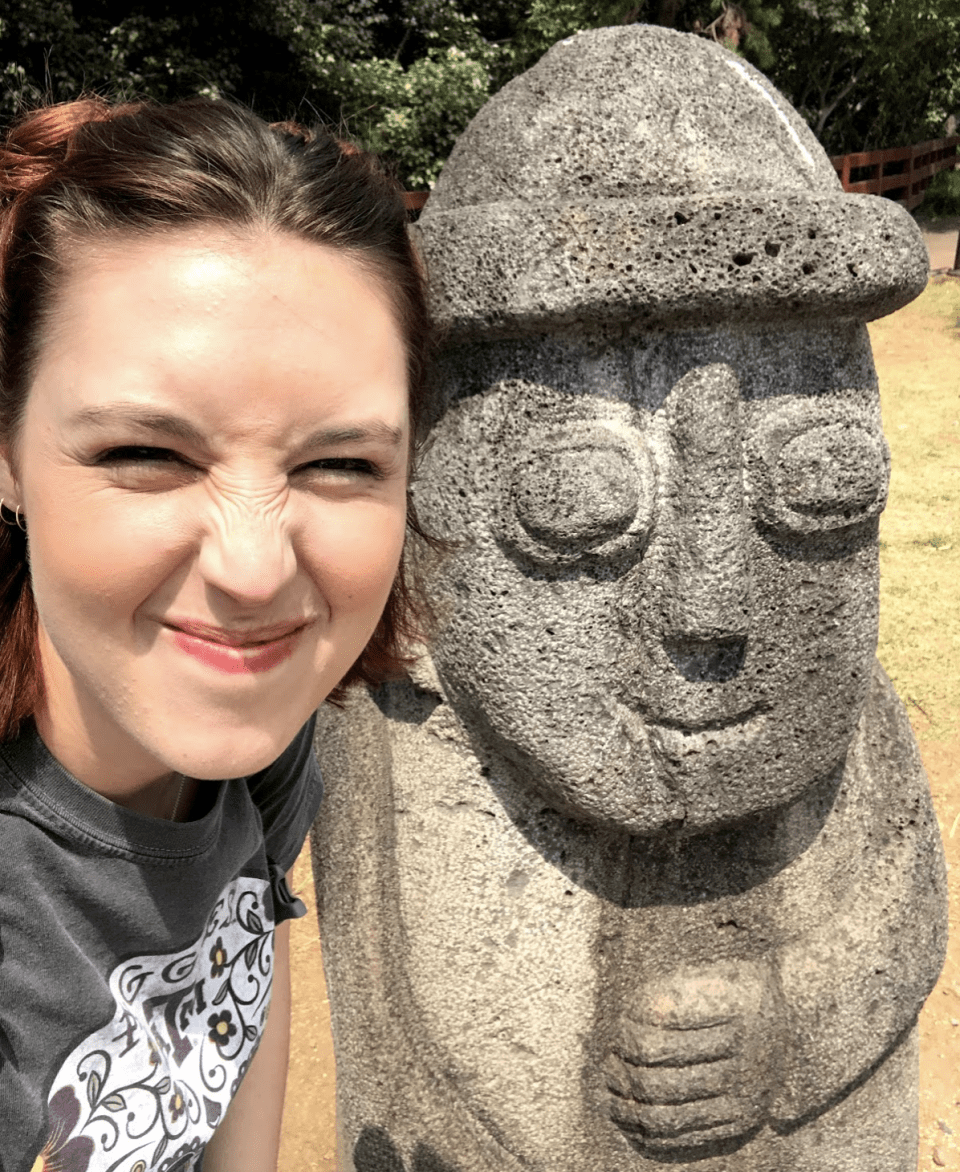
There are many good and bad things about living abroad. I feel like some of these are easily remedied if I was planning on making this my permanent home, like a car for example. Whatever your choice is, know that the issues you run into may be completely different than mine! It was actually hard for me to pick out bad things to put because the more I thought about what to write the harder it was for me to say they were “bad” because they really aren’t- frustrating maybe. Just like traffic back home is frustrating, it doesn’t mean it’s the worst place to live and is inhabitable, it’s just a part of living there. The “bad” parts about living here, can be frustrating but ultimately, it’s how you decide to respond to them.
Related Posts
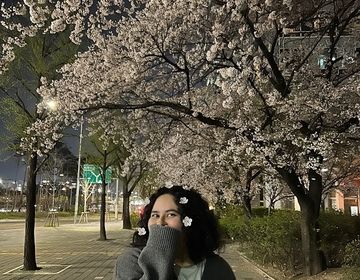
A Comprehensive Budgeting Guide for English Teachers in South Korea
A Comprehensive Budgeting Guide for English Teachers in South Korea Teaching English in South Korea has become an increasingly popular option for young people looking to travel and get some... keep reading
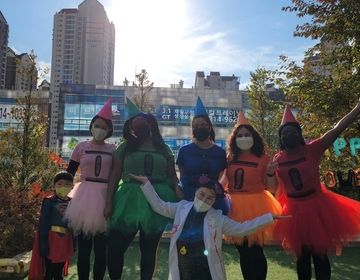
Professionalism in South Korea as a Native English Teacher
As a native English teacher in South Korea, understanding Korean culture and professionalism is crucial for both personal success and the broader impact you can have on your students. South... keep reading

How to Go to the Doctor in South Korea as an English Teacher: A Guide to Healthcare and Health Insurance
As an English teacher in South Korea, maintaining good health is essential while living abroad. Navigating the healthcare system can seem daunting and stressful at first, especially if you can’t... keep reading
